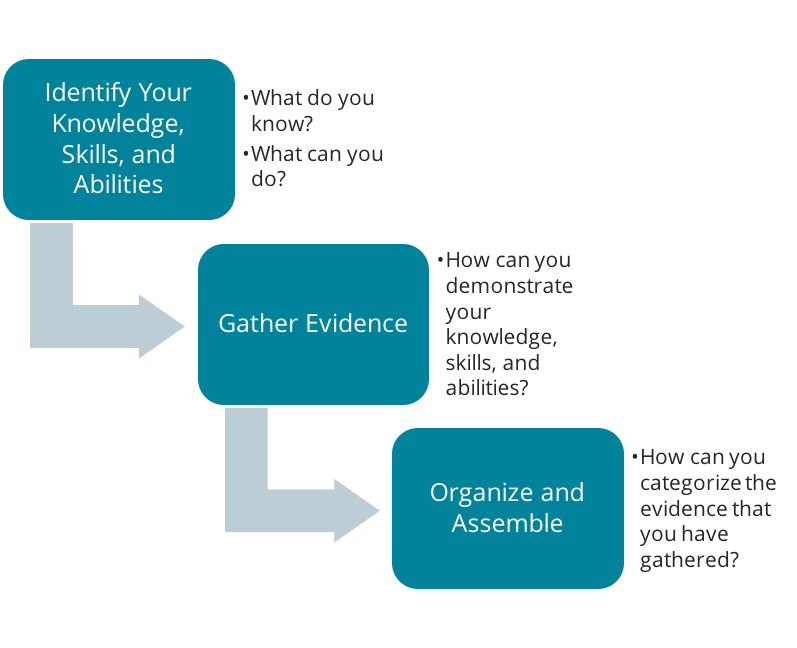How to Build a Digital Portfolio
Part one in a series on building your digital portfolio of accomplishments
A digital portfolio is a collection of files (documents, photos, videos, etc.) that you can use to reflect on your experiences and demonstrate your skills and accomplishments to potential employers, investors or customers.
A digital portfolio is a popular alternative to a traditional, paper-based portfolio because it:
- Is easy and quick to update
- Can support multimedia file formats
- Is easy to share with people, even if they are not nearby
- Can be less expensive than paying for portfolio cases, paper, printing and photocopying
- Saves paper and is environmentally friendly
It takes time and effort to develop a digital portfolio. However, the process of developing and updating it will help you reflect on what you have accomplished and determine what you would like to do in the future.
A strong portfolio can help you to review and evaluate past experiences and learning, and present your knowledge, skills and accomplishments in a compelling, visual manner.
Here are some examples of how digital portfolios can be used:
- A social entrepreneur can use a digital portfolio to showcase his business plan and market research when applying to a funding opportunity;
- A graphic designer can use a digital portfolio to gather examples of her work to share with a potential client;
- A job seeker can use a digital portfolio to collect evidence of her skills and experiences to send to prospective employers.
Building a Digital Portfolio
Building a digital portfolio takes time and effort. To build one, you need to:
- Identify your knowledge, skills, and abilities (what do you know? What can you do?)
- Gather evidence (how can you demonstrate your knowledge, skills, and abilities?)
- Organize and assemble your portfolio (how can you categorize the evidence you have gathered?)

Over the next few weeks, we’re going to walk you through building your own digital portfolio in a series of blog posts.
Up next: Identifying Your Skills, Knowledge, and Abilities: Life Experiences.

